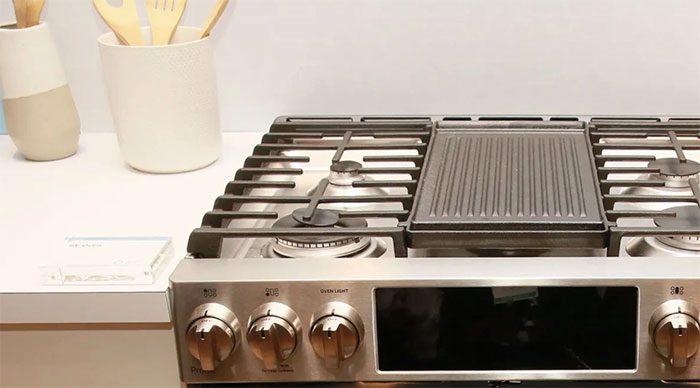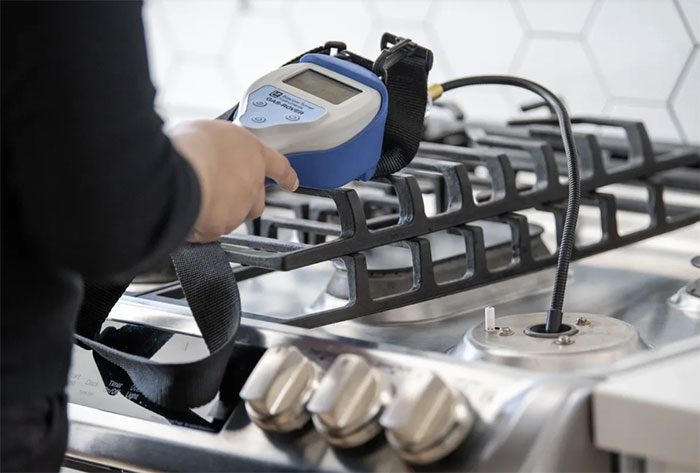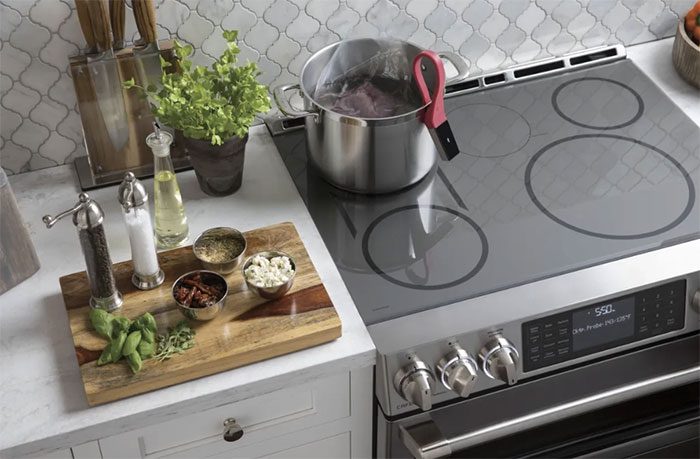CNET reports that two concerning studies regarding the common fuel used in household kitchens have sparked debate over whether the U.S. government should implement a ban on gas stoves.
Concerning Findings
Specifically, a 16-month study conducted by the T.H. Chan School of Public Health at Harvard University last June sampled 69 gas stoves from households supplied by three natural gas companies across Boston.
The methane leak tests revealed over 300 chemicals, including 21 hazardous air pollutants. Notably, benzene (a known carcinogen) was found in low concentrations in 95% of the natural gas that the research team tested and evaluated.

According to the study, 5% of the stoves tested leaked gas even when not in use.
Additionally, the study found that 5% of the stoves tested leaked gas even when not in use. The amount of gas leaked is often so small that it goes unnoticed by the human nose, but it still poses a potential health threat.
Meanwhile, a study published in January this year in the International Journal of Environmental Research and Public Health concluded that up to 12.7% of asthma cases in American children are linked to the use of gas stoves in homes. The rate is even higher in certain states, such as Illinois (21.1%), California (20.1%), and New York (18.8%).
According to CNET, it is important to note that these studies only indicate potential risks to humans when using gas stoves fueled by natural gas.
They do not measure the level of exposure to the mentioned pollutants or draw any conclusions about how low-level exposure to these toxins might impact human health over time.
Therefore, it is still too early to make broad claims about the health risks associated with using gas stoves.

Gas stoves remain a popular and affordable product.
Meanwhile, the American Gas Association argues that gas stoves are still a preferred and affordable option for more than one-third of households in the U.S. A government ban on the use of gas stoves would make housing costs more expensive.
How to Mitigate Risks When Using Gas Stoves?
Keep Your Kitchen Well-Ventilated
This is one of the best measures to combat the dangers of gas leaks. You should also open windows while cooking. If your kitchen lacks windows, consider installing a fan; it will help disperse the harmful dense air. It is advisable to keep the fan running for an additional 20 minutes after you finish using the gas stove, as benzene and carbon monoxide may linger in the air.
Regularly Inspect Your Stove

If you notice signs of a gas leak, leave the house and call for assistance.
Keep an eye on your gas stove, especially if you smell gas in the kitchen. If you notice any signs of a gas leak, leave the house immediately and contact professional services for help.
If you want to check for gas leaks yourself, you can invest in a gas leak detector for about $30 on Amazon.
Switch to Propane Stoves or Electric Stoves
This is the most definitive fix but can also be the most costly solution. Additionally, cooking with induction stoves or propane (liquefied gas) can still have negative impacts, as burnt food and oil release toxins into the air.
The risks associated with using electric stoves are much lower than with gas stoves, but it is still important to keep your kitchen ventilated and to regularly check air quality.


















































